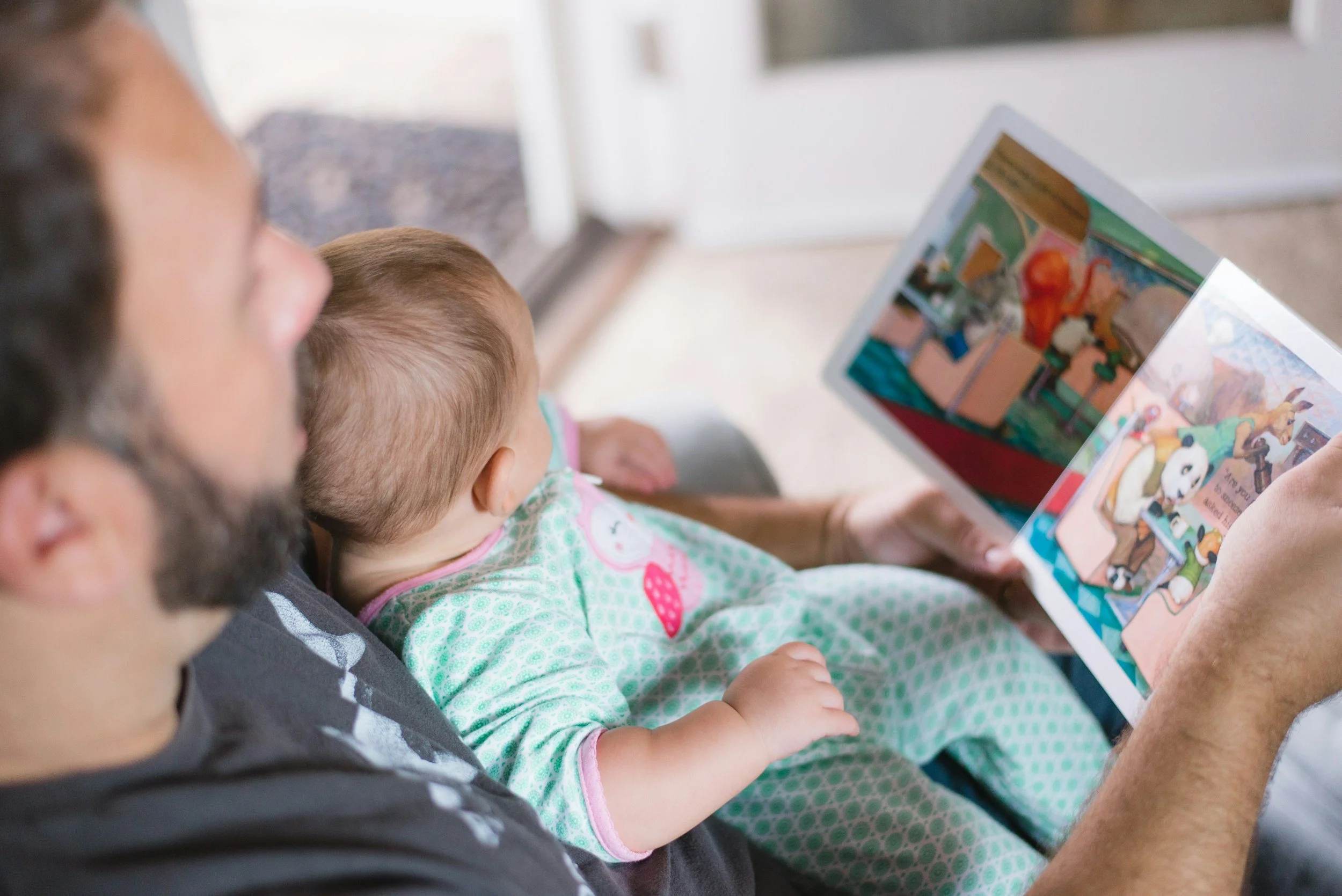What to Expect as a Foster Parent in Butte County, CA
Becoming a foster parent is a profound and life-changing decision. It opens the door to love, growth, and healing—both for the children in need and the families who care for them. If you're exploring what it means to become a foster carer in Butte County, you're not alone. Every year, more people ask how to support children in the foster care system and find themselves seeking guidance, compassion, and clarity.
This page is your comprehensive look at what to expect when fostering children in Butte County, California. From the emotional realities of being a foster parent to understanding financial support and preparation, we’re here to walk with you every step of the way.
Understanding the Journey of Foster Parenting
Foster parenting is about opening your home to children who need stability, safety, and support during a difficult time in their lives. Some children stay for a short period; others may become a lasting part of your family. No matter the length of time, your role as a foster carer can have a lifelong impact.
Before you become a foster parent, it's important to understand the full picture: the joys, the challenges, and the support systems available to you. Working with a supportive, community-based foster care agency makes a significant difference in your experience.
If you're searching for “foster care near me,” you're likely already thinking about how you can contribute to a child's wellbeing. Let’s break down what you can expect.
What Is the Hardest Thing About Being a Foster Parent?
The most rewarding journeys often come with challenges—and being a foster parent is no exception. While every family’s experience is unique, there are shared emotional and practical hurdles that many foster carers face when they open their hearts and homes to children in need. Fostering children is a profound act of love and service, but it requires strength, resilience, and a willingness to embrace the unknown.
1. Letting Go Perhaps the most difficult part of foster parenting is accepting that the children in your care may not stay with you forever. Foster care is designed to be temporary, providing a safe and nurturing space while long-term plans for the child are determined. These plans may include reunification with birth parents, placement with extended family, or adoption.
Saying goodbye after forming a deep emotional connection can be heartbreaking. Many foster parents describe the feeling as a kind of grief—one that is both expected and unpredictable. Yet, despite the pain of parting, many foster carers choose to open their homes again and again, knowing that even a short time of stability and love can change a child’s life.
2. Navigating Trauma Children in the foster care system often carry the weight of difficult life experiences. They may have endured abuse, neglect, or the loss of their families. These traumas can show up in a range of behaviors—withdrawal, defiance, fear, difficulty sleeping, or emotional outbursts.
Being a foster parent means learning to respond to trauma with empathy rather than frustration. It involves looking beyond the behavior to understand what a child has been through. It’s not always easy, but with consistent support from a foster care agency and access to training, foster carers can become powerful advocates and healing influences in a child’s life.
Youth & Family Programs, one of the leading private foster care agencies in Butte County, ensures that families are not alone in navigating these challenges. With resources, professional guidance, and a caring team, they walk alongside families every step of the way.
3. Complex Family Dynamics Fostering children means becoming part of a larger support system that includes social workers, therapists, teachers, doctors, and—most importantly—birth families. Foster carers often participate in family visitation schedules and may be called upon to support reunification efforts.
These interactions can be emotionally complex. You may have mixed feelings about the child’s biological family or feel anxious about how your foster child responds to visits. In some cases, you may be navigating court hearings, team meetings, or advocating for services.
This is where support from your foster care agency becomes invaluable. Agencies like Youth & Family Programs help foster carers navigate these intricate systems with compassion and professionalism, ensuring that the child’s best interests remain the priority.
4. Emotional Investment To be a foster parent is to love deeply—and to do so knowing that your time with a child might be temporary. This emotional investment can be taxing. It means staying up late to comfort a child having nightmares. It means celebrating small victories, like a smile after weeks of silence. It means holding space for grief, joy, anger, and healing.
The vulnerability required for this work is both beautiful and painful. But it’s also what makes fostering children so meaningful. Foster carers often say that the love they give—and receive—through fostering is unlike any other experience.
5. Uncertainty and Change The foster care system is full of moving parts. Plans can shift quickly based on court decisions, caseworker updates, or unexpected family developments. This uncertainty can be difficult for both foster parents and children. Learning to stay flexible and emotionally grounded in the face of change is a skill that many foster carers develop over time.
Despite these challenges, thousands of people continue to become foster parents in California—not because it’s easy, but because it matters. Every foster parent makes a lasting impact, providing children with safety, compassion, and the chance to heal.
If you’re exploring how to become a foster carer or looking for a foster care agency that offers ongoing support, consider connecting with Youth & Family Programs. Their experienced team understands the complexities of foster parenting and is committed to helping you succeed.
Do You Get a Monthly Check When You Foster a Child in California?
Yes, foster parents in California receive a monthly reimbursement to help offset the costs of caring for a foster child. This financial support is designed to ensure that children in the foster care system receive consistent care and that foster families are not financially burdened for stepping up in a time of need. It's important to understand that this reimbursement is not considered income—rather, it is intended to help with the day-to-day needs of the child in your care.
What Does the Monthly Reimbursement Cover?
The reimbursement is meant to assist with a variety of basic expenses associated with raising a child. These include:
Nutritious food and snacks
Clothing and shoes
School supplies and educational materials
Transportation costs (gas, bus fare, etc.)
Personal hygiene and care items
Recreational activities or extracurricular programs
Birthday and holiday gifts
In short, this monthly support ensures foster parents have what they need to create a safe, healthy, and nurturing environment.
How Much Is the Monthly Payment?
The exact amount a foster parent receives varies based on several factors, including the child’s age, individual needs, and the required level of care. California’s foster care reimbursement rates are tiered to reflect these variables. For example:
Younger children may receive a lower base rate than teenagers, who typically have higher living expenses.
Children who need intensive supervision, medical care, or mental health support may qualify for additional funding.
Emergency placements or short-term stays may be eligible for supplemental assistance.
Foster carers may also qualify for additional financial support through specialized programs, such as:
Special Care Increments (SCI): For children with complex emotional, behavioral, or medical needs.
Clothing Allowances: Some counties or agencies offer additional stipends for clothing, especially during back-to-school season.
Transportation Reimbursements: When travel is required for medical appointments, court hearings, or family visits.
Respite Care Funds: To help foster parents recharge, funds may be available to cover short-term respite care.
It’s worth noting that rates and benefits can change, and they sometimes vary slightly between counties. Working with an experienced foster care agency like Youth & Family Programs can help you stay informed about the latest reimbursement structures and how to qualify for available supports.
How Youth & Family Programs Supports You
When you choose to foster through a private foster care agency like Youth & Family Programs, you gain access to a dedicated team that helps you understand and manage the financial side of foster parenting. We ensure that:
You receive the full monthly reimbursement you’re entitled to
You’re informed about additional resources and services that may benefit your foster child
You have guidance on navigating complex funding options, such as support for high-needs children or emergency placements
Our team is here to answer your questions, help with paperwork, and advocate for the needs of the children and families we serve.
Beyond the Money: The Heart of Foster Parenting
While the financial support is an essential part of ensuring children’s needs are met, it’s not the reason most people decide to become a foster parent. In fact, the vast majority of foster carers will tell you that the emotional and relational rewards far outweigh any financial reimbursement.
There is something powerful about offering safety, stability, and love to a child who needs it most. Whether it’s watching them blossom in school, develop new friendships, or simply feel safe enough to sleep through the night, being a foster parent is filled with moments that money can’t buy.
Choosing to become a foster carer means stepping into a role that is both challenging and deeply rewarding. With the right support system—including financial reimbursement and guidance from a reliable foster care agency—you’ll be equipped to focus on what really matters: helping children thrive.
For more details about the full process, visit our Guide to Becoming a Foster Parent in Butte County, CA.
Still have questions? We’re here to help. Reach out today:
CHICO: 530-893-1614
REDDING: 530-365-9197
What to Know Before Foster Parenting
If you're asking what to know before becoming a foster parent, you’re already showing the kind of compassion and thoughtfulness that make a great foster carer. Fostering children is a meaningful, life-changing experience—not just for the children you welcome into your home, but for you as well. That said, it’s natural to have questions or even a few hesitations. Here are some key things to know before you begin the foster parenting journey in Butte County, CA or anywhere else in California.
1. You Don’t Have to Be Perfect
There’s no such thing as a perfect parent—and the same applies when it comes to being a foster parent. You don’t need to be married, wealthy, or have parenting experience to qualify. People from all walks of life, whether single individuals, couples, or families, can become a foster carer. What truly matters is your capacity for empathy, patience, consistency, and a willingness to show up for a child in need.
Foster parenting is about progress, not perfection. You’ll grow, learn, and adapt as you go—and you’ll never be expected to do it alone.
2. Training Is Required—And It’s Incredibly Valuable
Before you can officially become a foster parent in California, you’ll need to complete pre-service training. These training sessions are designed to equip you with the tools you need to support children in the foster care system. Topics often include:
Trauma-informed care
Cultural sensitivity and diversity
Child development and age-appropriate discipline
How to support reunification
Communication and conflict resolution
These trainings aren’t just boxes to check—they're key to preparing yourself for fostering children with complex needs. Organizations like Youth & Family Programs offer thorough and accessible training, plus continued education and workshops so you’re always growing in your role.
3. Foster Parenting Is a Team Effort
When you foster, you join a larger community of support. Foster parenting isn’t about being on your own—it’s about working alongside a dedicated network of professionals, including social workers, therapists, educators, healthcare providers, and birth families.
Choosing to work with a private foster care agency like Youth & Family Programs means you’ll have 24/7 support, access to resources, regular check-ins, and someone to call when you need advice or a listening ear. A good agency helps ensure that your family, and the children placed with you, receive the support you all deserve.
4. Children in Foster Care Come From All Backgrounds
One of the most important things to understand is that children in the foster care system are incredibly diverse. They come from all racial, ethnic, and socioeconomic backgrounds. Some may have disabilities or medical conditions, others may speak a different language at home. Many have experienced trauma, grief, or uncertainty.
Being a foster parent means welcoming children where they are and supporting them in feeling seen, heard, and valued. It’s also about being open to learning about different cultures, family structures, and experiences.
5. Stability and Structure Make a Big Difference
Children in foster care often come from environments where they’ve experienced instability or unpredictability. By offering a safe, structured, and nurturing home, you can help rebuild their sense of trust and security.
Even simple things—like having regular meal times, keeping a consistent bedtime routine, or celebrating birthdays and holidays—can provide healing. These moments of normalcy help children begin to feel safe and valued.
6. You’ll Grow in Ways You Never Expected
Being a foster parent can stretch your heart and strengthen your resilience. You'll learn about empathy, advocacy, patience, and flexibility. Many foster carers report that fostering has helped them grow not just as caregivers, but as individuals. You may find yourself developing deeper emotional awareness, stronger communication skills, and an even greater appreciation for family and community.
Every foster parenting journey is different, but all are significant.
If you’re ready to take the next step, we encourage you to call our friendly team today:
CHICO: 530-893-1614
REDDING: 530-365-9197
What It’s Like Working With a Foster Care Agency
The foster care system in California can feel overwhelming, especially at first. That’s why partnering with a caring, experienced foster care agency makes such a difference.
Youth & Family Programs is proud to serve Butte County and surrounding areas with a people-first approach to foster care. Unlike larger systems, we focus on personalized, local support. As a foster parent with us, you receive:
A dedicated social worker who knows your family
Regular home visits and open communication
24/7 crisis support and coaching
Ongoing training and continuing education
Parent support groups and community events
Help with school advocacy, mental health referrals, and more
We understand the unique needs of children and families in our area. If you’re searching for “foster care near me,” we’re right here in your community.
A Day in the Life of a Foster Parent
While no two days are alike, here’s a glimpse into the life of a foster carer:
Morning: Get your foster child ready for school, including breakfast and morning routines. Drop-offs may involve communicating with teachers or school staff about any needs.
Afternoon: After school, your foster child may attend therapy, tutoring, or visits with birth family members. You may provide transportation or coordinate with your social worker.
Evening: Dinner together as a family, followed by homework help or quiet time. You may spend time supporting your child’s emotional needs or working on behavior goals.
Ongoing: Attend foster parent trainings, complete documentation, meet with your agency social worker, and participate in support groups.
Through it all, you are building trust, creating structure, and offering love—one day at a time.
Why Families Choose to Be a Foster Parent in Butte County
Families choose to become foster carers for many reasons:
A desire to help children in their community
A personal connection to the foster care system
A heart for service and nurturing
Interest in adoption or long-term care
Wanting to make a difference during transitional periods in a child's life
In Butte County, the need for loving, stable foster families is ongoing. When you become a foster parent, you fill a critical gap—providing safety, consistency, and hope during a vulnerable time.
Ready to Take the First Step?
If you're ready to explore foster parenting further, the first step is reaching out. Youth & Family Programs is here to support you through the entire process, from application to placement and beyond.
Every child deserves a safe, loving home—and every foster parent deserves a supportive agency to walk beside them. We’d be honored to be that partner for you.




